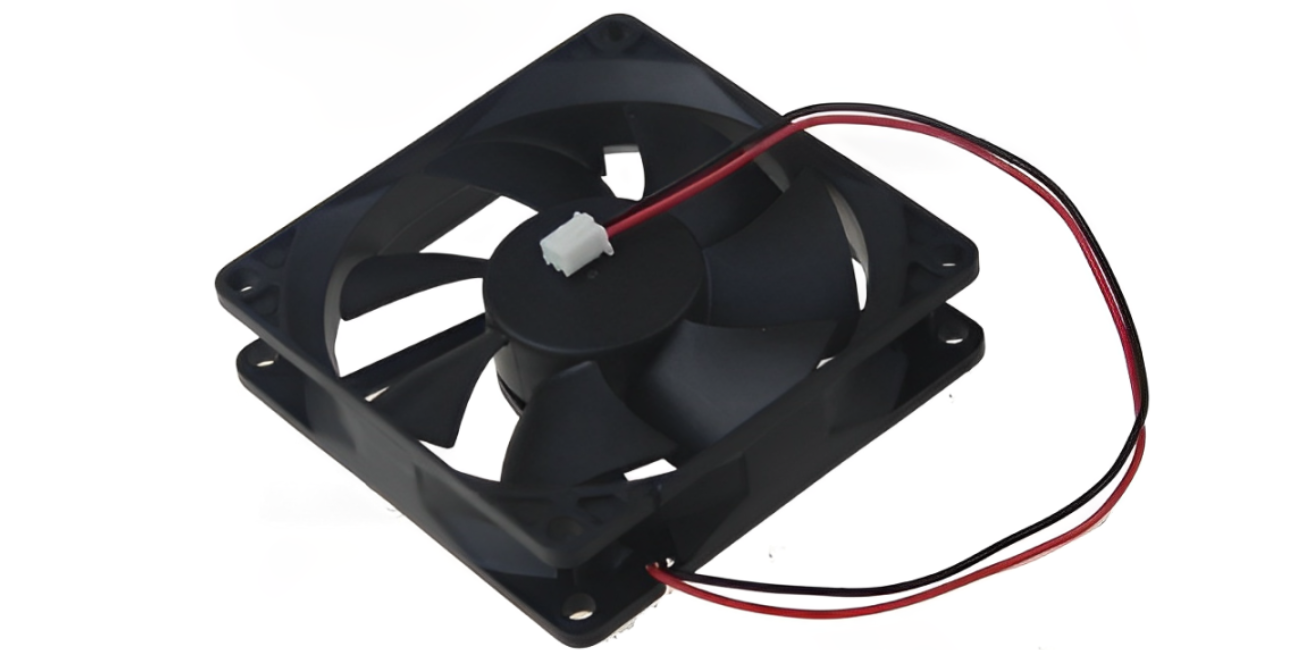The Unsung Hero of Cool: Exploring the Versatility of the 60x60x15mm 24V Generic DC Fan
In the intricate world of electronics and DIY projects, effective thermal management is paramount. Overheating can lead to system instability, reduced lifespan, and even complete failure of valuable components. This is where the seemingly humble DC Fan 60x60x15mm 24V Generic steps into the spotlight. Often overlooked, this compact yet powerful cooling solution plays a crucial role in maintaining optimal operating temperatures across a wide spectrum of applications.
This blog post delves into the features, benefits, and diverse applications of the 60x60x15mm 24V generic DC fan, highlighting why it's a go-to choice for hobbyists, engineers, and manufacturers alike.
Understanding the Basics
The nomenclature "60x60x15mm 24V Generic DC Fan" provides a concise description of its key characteristics:
- 60x60mm: This refers to the fan's dimensions – a square frame with sides measuring 60 millimeters each. This compact size makes it ideal for applications with limited space.
- 15mm: This indicates the thickness or depth of the fan, which is a slim 15 millimeters, further enhancing its suitability for tight enclosures.
- 24V: This specifies the operating voltage of the fan. It requires a 24-volt DC power supply to function.
- Generic: This implies that the fan is a standard, widely available model, often without specific brand affiliations, making it cost-effective and easily sourced.
- DC Fan: This signifies that the fan utilizes a direct current (DC) motor, which offers several advantages over AC fans, including energy efficiency and the possibility of speed control.
Key Features and Benefits
Despite its "generic" label, this type of DC fan boasts several noteworthy features and benefits:
- Compact Size: The small footprint allows for integration into devices and enclosures where space is at a premium. Think of cooling single-board computers, small electronic housings, or even custom DIY projects.
- Efficient Cooling: Designed to generate a consistent airflow, these fans effectively dissipate heat from nearby components, preventing thermal throttling and ensuring stable performance. Specifications like CFM (cubic feet per minute) indicate the volume of air the fan can move.
- Reliable DC Motor: DC brushless motors, commonly found in these fans, offer a longer lifespan compared to brushed motors due to reduced friction and wear. They also tend to operate more quietly and efficiently.
- Low Power Consumption: DC fans are generally more energy-efficient than their AC counterparts. A typical 24V 60x60x15mm fan might consume only a few watts, making it suitable for battery-powered applications or systems where power conservation is crucial.
- Versatile Applications: Their size and voltage make them adaptable to a wide range of uses, from cooling electronic components and computer cases to ventilation in small enclosures and even specialized DIY projects like 3D printer electronics cooling.
- Cost-Effective: Being "generic" often translates to a more affordable price point compared to brand-specific fans, making them a budget-friendly solution for numerous cooling needs.
- Easy Integration: Typically equipped with simple two-wire (power and ground) or three-wire (with a tachometer for speed monitoring) connectors, these fans are straightforward to integrate into existing circuits.
Diverse Applications
The 60x60x15mm 24V generic DC fan finds its niche in a multitude of applications:
- Electronics Cooling: Keeping microcontrollers, heat sinks, and other heat-sensitive components within their operating temperature range is crucial for their longevity and performance. These fans are ideal for this purpose in various electronic devices.
- Computer Hardware: While larger case fans are common, smaller 60mm fans can be used to cool specific areas within a computer, such as chipset heat sinks or expansion cards.
- 3D Printing: The electronics within a 3D printer, such as the control board and stepper motor drivers, generate heat. A 60x60x15mm fan can provide targeted cooling to these critical components.
- Small Enclosure Ventilation: For custom electronic projects housed in small boxes or enclosures, these fans can ensure proper air circulation to prevent heat buildup.
- Automotive Applications: In some automotive electronics or custom installations, a small 24V fan might be needed for cooling specific modules.
- DIY and Hobbyist Projects: Makers and hobbyists frequently utilize these fans in their custom creations, ranging from robotics to home automation systems, wherever localized cooling is required.
Considerations When Choosing
While generic fans offer great value, it's essential to consider a few factors when making a selection:
- Airflow (CFM): Different applications require varying levels of airflow. Check the fan's CFM rating to ensure it meets your cooling needs.
- Noise Level (dBA): If noise is a concern, look for fans with lower dBA ratings. Sleeve bearing fans tend to be quieter initially but may have a shorter lifespan than ball bearing fans.
- Bearing Type: Sleeve bearings are generally more affordable, while ball bearings offer better durability and a longer lifespan, especially in continuous operation. Hydraulic sleeve bearings aim to combine the benefits of both.
- Connector Type: Ensure the fan's connector is compatible with your power supply or control system. Common types include 2-pin and 3-pin connectors.
- Rated Current: Verify that your power supply can provide the necessary current for the fan to operate correctly.
Conclusion
The DC Fan 60x60x15mm 24V Generic is a testament to the fact that effective solutions don't always need to be complex or expensive. Its compact size, reliable DC motor, and versatile nature make it an indispensable component in a wide array of electronic and DIY applications. By providing efficient and localized cooling, this unsung hero ensures the longevity and stable operation of the devices we rely on daily, quietly working behind the scenes to keep things cool. Whether you're a seasoned engineer or a passionate hobbyist, this little fan is a valuable asset in your thermal management toolkit.

